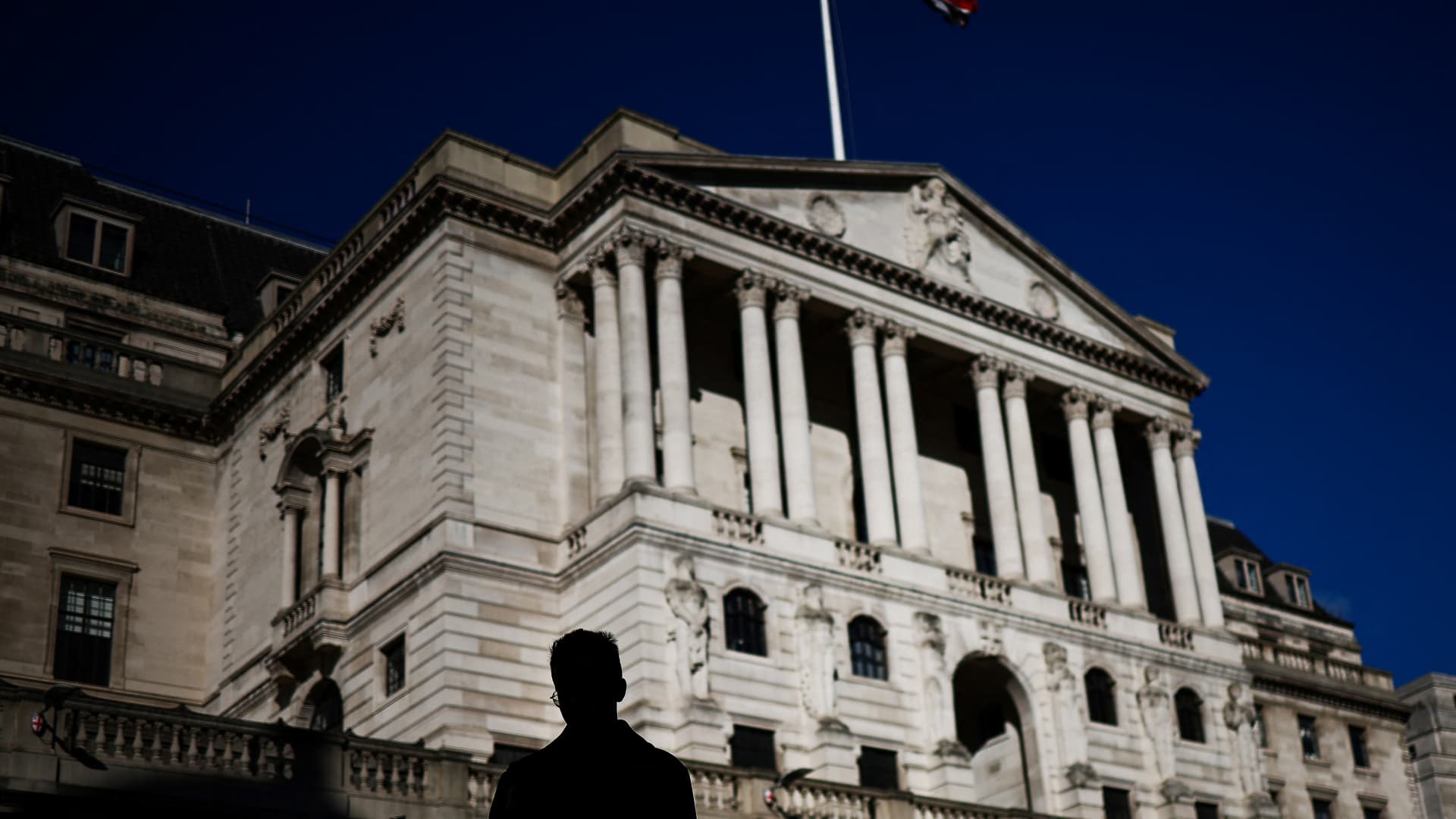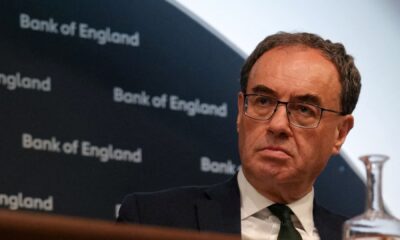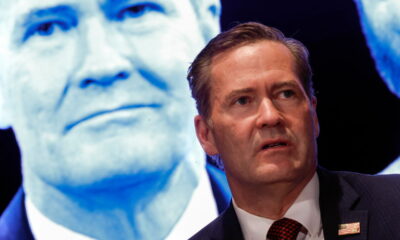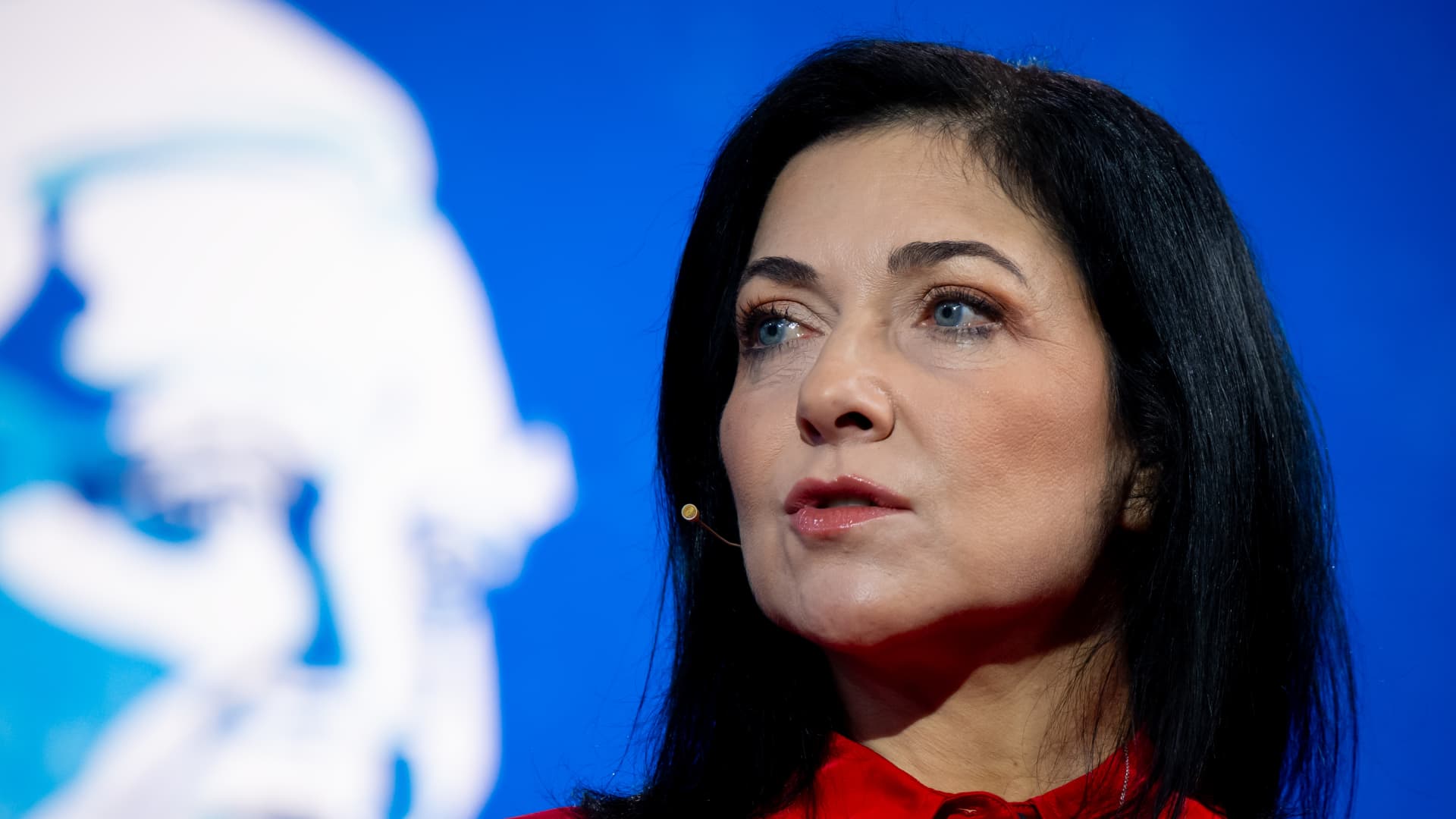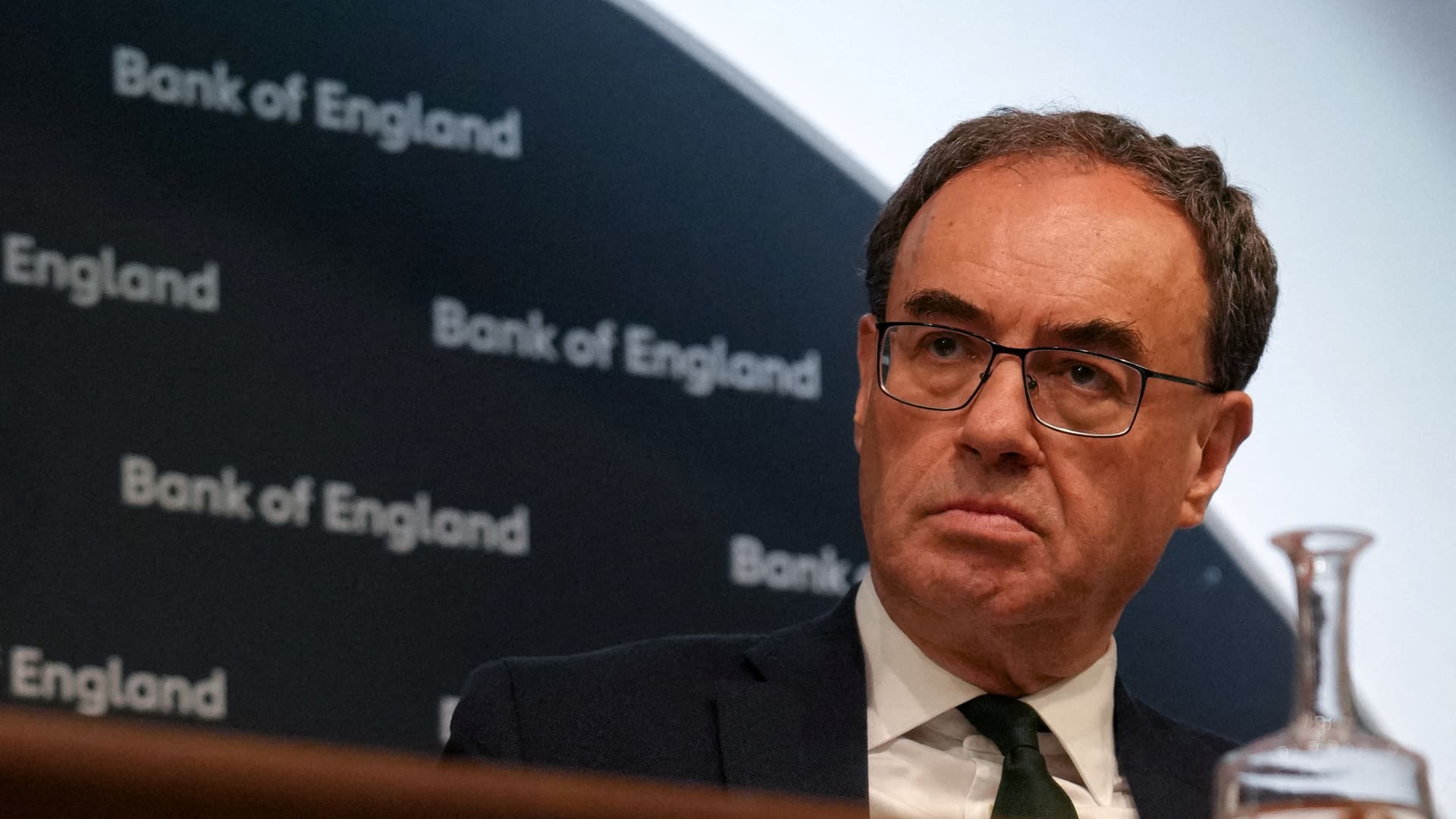The Bank of England in London on Feb. 12, 2024.
Henry Nicholls | Afp | Getty Images
The Bank of England is widely expected to hold interest rates when it meets on Thursday, as the U.K. faces economic headwinds both at home and abroad.
The central bank is highly likely to keep its benchmark interest rate at 4.5% at its March meeting, given the unpredictability of President Donald Trump’s trade tariffs and a fledgling global trade war, and how those factors could affect inflation in the U.K.
The BOE is also convening as the U.K economy shows signs of stalling, with monthly growth data showing anemic output. Thursday’s meeting comes just days before U.K. government taxation changes come into force that have proven unpopular with businesses, which say their rising tax burden could dent growth, investment and jobs.
For its part, the Bank of England already warned at its last meeting in February that it would tread carefully, as it downgraded the U.K.’s growth forecast for 2025 and predicted a temporary rise in the rate of inflation to 3.7% — above the bank’s target of 2% — which BOE policymakers said would be caused by higher energy prices.
As for Trump’s tariffs, Bank of England Governor Andrew Bailey warned earlier in March that potential trade duties were another threat to the country’s economy, and growth, telling British lawmakers that “the risks to the U.K. economy, and indeed the world economy, are substantial” and that U.K. citizens would have less money “in their pockets” as a result of tariffs.
Dissent in the committee
In February, a majority of seven members out of the nine-strong monetary policy committee voted in favor of a cut, with two of the MPC’s members, including well-known “hawk” Catherine Mann, voting for a larger trim.
Economists say the voting split of Thursday will be closely watched.
“There are visible signs of disagreement at the Bank of England on the pace of rate cuts required this year. But with wage growth and inflation remaining sticky, we expect the Bank to keep rates on hold this Thursday, ahead of the next rate cut in May,” James Smith, developed markets economist at ING, said in a note Monday.
Andrew Bailey, governor of the Bank of England, during a financial stability report news conference at the central bank’s headquarters in London on Nov. 29, 2024.
Bloomberg | Bloomberg | Getty Images
“Drama is not often synonymous with the Bank of England. But February’s meeting was nothing short of a bombshell. [BOE committee member] Catherine Mann, who for months had led the opposition to rate cuts, surprised everyone with her vote for a 50 basis point rate cut. And that posed the question: if the arch-hawk is prepared to vote for faster rate cuts, will the rest of the committee soon follow suit?,” Smith questioned.
“For all the excitement, the answer seems to be no. Most officials that have spoken since have struck a much more cautious tone,” he noted, with ING predicting three more rate cuts will take place this year. It nevertheless conceded that inflationary pressures are putting the central bank in an “uncomfortable position.”
Budget changes?
The BoE is meeting days before the U.K. Treasury’s “Spring Statement” on March 26, when British Chancellor Rachel Reeves presents an update on her plans for the British economy.
The finance minister is coming under pressure to cut public spending, raise taxes further or to bend the government’s self-imposed fiscal rules amid higher borrowing costs, with the yield on U.K. debt picking up in recent months. The treasury has mooted the idea of cutting spending on welfare payments, but the idea remains controversial among lawmakers in the center-left Labour government.
Reeves’ ‘Spring Statement’ will be announced alongside economic forecasts from the Office for Budget Responsibility, the U.K.’s independent economic and fiscal forecaster, which gives its assessment on the likely impact of the government’s taxation and spending plans that were announced last fall.
That budget included £40 billion ($51.9 billion) worth of tax rises — with the burden falling mainly on businesses — to plug a black hole in the public finances and allow for investment in public services.
Rachel Reeves, U.K. finance minister, speaking on CNBC’s “Squawk Box” outside the World Economic Forum in Davos, Switzerland, on Jan. 22, 2025.
Gerry Miller | CNBC
The OBR is widely expected to downgrade its U.K. economic forecasts, putting further pressure on Reeves to amend her policy plans.
“It was not supposed to be like this. U.K. chancellor Rachel Reeves planned to present the government’s official biannual forecast on 26 March without making any changes to policy. However, a rise in market interest rates, high borrowing in fiscal year 2024-25, and a possible downgrade to the Office for Budget Responsibility’s productivity growth assumption have conspired against her,” Andrew Wishart, senior U.K. economist at Berenberg Bank, said in analysis Monday.
“Without spending cuts or tax rises, the OBR would forecast the government missing its fiscal rule of funding day-to-day spending entirely with tax revenue by 2029-30. To avoid six months of speculation about how Reeves will make up the shortfall in the next fully-fledged budget in the autumn, the chancellor must act now,” he added.
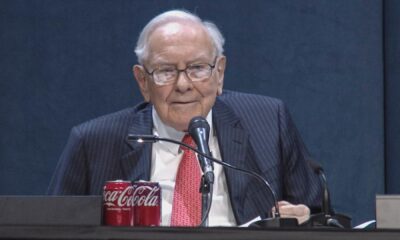
 Finance1 week ago
Finance1 week ago
 Personal Finance1 week ago
Personal Finance1 week ago
 Finance1 week ago
Finance1 week ago
 Economics1 week ago
Economics1 week ago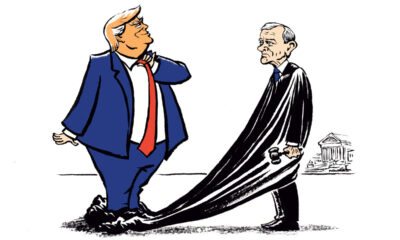
 Economics1 week ago
Economics1 week ago
 Economics1 week ago
Economics1 week ago
 Economics1 week ago
Economics1 week ago
 Accounting1 week ago
Accounting1 week ago
